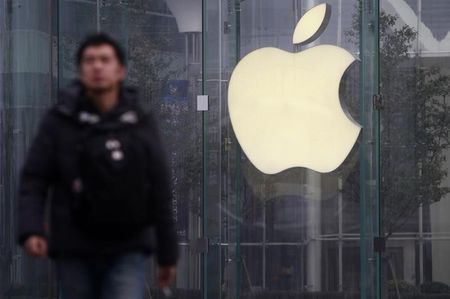By Paul Carsten and Gerry Shih
BEIJING (Reuters) - Apple Inc is hiring a head of law enforcement in Beijing to deal with user data requests from China's government, according to a public job listing, after it last month began storing private data on Chinese soil for the first time.
According to the job listing, posted on professional networking site LinkedIn, the position will handle the "increasing number of third-party requests for access to Apple controlled data within China."
The hiring of a head of law enforcement demonstrates the trade-off that comes with placing data storage within China, a move some technology companies avoid. Having a server in the country can provide faster service to domestic customers, but it also means China's government can demand those servers' data, as is the case in other countries.
"The role will be directly responsible for the management, handling and issuance of appropriate responses to requests from law enforcement authorities, public prosecutors, and Courts etc. throughout China," said the posting on LinkedIn.
Apple declined to comment, but referred Reuters to the company's new privacy policy including a section on government data requests.
According to the Apple posting, the candidate would need to "educate requesters as to the data that can and cannot be supplied in particular circumstances while maintaining good working relations with requesters."
The job was initially posted in early August and was re-posted last week. The new position advertisement has received 11 applicants.
Technology companies including Google Inc, Yahoo Inc and Facebook Inc routinely employ staff on their legal teams to determine how to respond to government requests for data.
In the case of Google, for instance, the search giant said this week that government requests have risen 150 percent in the past five years excluding those made by the U.S. government under the Foreign Intelligence Surveillance Act. Google complied with 65 percent of the 31,698 requests made during the first half of 2014, it said.
Google publicly abandoned China in 2010 and moved its services, including its search engine, to Hong Kong-based servers after refusing to comply with Chinese government censorship.

Yahoo came under fire and U.S. Congressional scrutiny after it in 2005 handed to Chinese authorities emails that led to the imprisonment of Shi Tao, a journalist who obtained and leaked an internal censorship order the government had sent Chinese media.
(Editing by Ryan Woo)
3_800x533_L_1412602648.jpg)